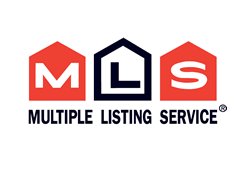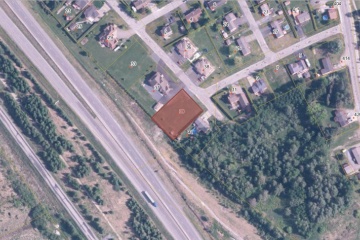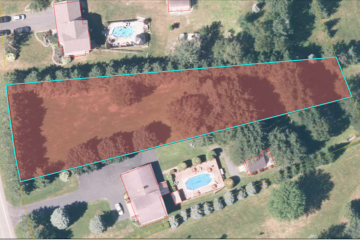Buying a Property
Are you ready to make your dream of being a homeowner come true? Making your project a reality is our mission.
Our advice
Deleted
Finding the right real estate agent is being halfway there. The best way to find a good one is to ask for references from family and friends. In this section, find out which qualities to look for in a good agent who will help you find your perfect home.
In order to provide you with an exceptional service, a good real estate agent must have several essential qualities such as:
- Establishing a trustworthy relationship with you.
- Demonstrating integrity, loyalty and respect.
- Respecting the privacy of negotiations.
- Being honest and listening to your needs.
- Helping you establish your needs and your search criteria.
- Sharing his/her knowledge and experience with you.
- Having a flexible schedule to accommodate you.
- Having good knowledge of the real estate market and being up to date with comparable sales, statistics and mortgage rates in order to support you.
- Being transparent, fair and equitable in negotiations.
Finally, our services for purchasing a home are free of charge!
Buy with confidence!
Finding the right real estate agent is halfway there. The best way to find a good one is to ask for references from family and friends. In this section, find out which qualities to look for in a good agent who will help you find your perfect home.
To provide you with exceptional service, a good real estate agent must have several essential qualities such as:
- Establishing a trustworthy relationship with you.
- Demonstrating integrity, loyalty, and respect.
- Respecting the privacy of negotiations.
- Being honest and listening to your needs.
- Helping you establish your needs and your search criteria.
- Sharing his/her knowledge and experience with you.
- Having a flexible schedule to accommodate you.
- Having good knowledge of the real estate market and being up to date with comparable sales, statistics, and mortgage rates in order to support you.
- Being transparent, fair, and equitable in negotiations.
Finally, our services for purchasing a home are free of charge!
Main house styles
How to browse through the different house styles? Bungalow, semi-detached, two-level, two stories, and more! Start here to determine which type of home is right for you.
Bungalow:
Single-family one-story house where all rooms are located on the same floor. Where the basement is finished, other rooms can be added.
Multi-level:
Homes that have living spaces with multiple floors connected with short flights of stairs.
Split entry:
Bungalow whose entrance is located between the ground floor and the basement; the different floors are connected by short flights of stairs.
Split-level:
House characterized by the separation of day and night spaces. For example, the ground floor can accommodate common living spaces (entrance, living room, kitchen, etc.) while the half-floor can be reserved for bedrooms, the bathroom, or the office.
1 ½ story:
House is characterized by a steeply pitched roof where the second floor is located, the living area of which is much smaller than the ground floor. The ceiling on the second floor slants down towards a short wall.
2 story:
House with two floors above ground level, characterized by the bedrooms located on the upper floor and common living space on the main floor.
2 ½ story:
Two-story house in which the attic is used. This style of property is mostly found in old houses in which the attic was used to lodge domestics or for storage.
Semi-detached:
House that shares a common wall with the neighboring home. Each side of the building is a separate dwelling, and neighbors do not share ownership or responsibilities for the entire building.
Duplex :
Property comprising two units side by side or superimposed. There is only one title deed (one owner and one tenant).
Mobile home:
Rectangular-shaped dwelling built using a sheet metal chassis on a steel frame. It can be installed on blocks or a foundation. Previously, it was given the name “trailer.”
Mini-home:
Small modular one-unit house. It has the advantage of having all rooms on the same floor.
Condominium:
Differs from apartments in that each unit is individually owned, but common areas are shared by all co-owners (hallways, structure, parking, landscape). Living in a condominium requires less maintenance. However, owning a condominium means that you must follow the rules established by the condominium board of directors to ensure the comfort, safety, and cleanliness of the premises.
What you should know before buying
When you have a fondness for a property, its good sides tend to make you forget all the rest. Remember, buying a property is the biggest investment in a lifetime! You would surely not want to regret your choice. Here are the main points to consider before buying.
- Pay attention to the general condition of the house. Is it clean? Do the walls need to be repainted? Is the lawn maintained? If minor details have been neglected, it is very likely that more important ones have been as well.
- Check things out. Try out the lights, faucets, toilets, air conditioning, and major appliances to see if they are working well.
- Check for leaks. Observe ceilings and walls for any signs of leaks or bulges. Moisture entering through cracks in the roof or foundation can make the wood rot and generate mold.
- Pay attention to floors that feel soft, elastic, rough, or creaky. They could be signs of major and expensive repairs.
- Check the doors and windows. Make sure they close well and are easy to open. See if there are any drafts. Watch for peeling paint or bad caulking; if the wood is not protected from mold, it will rot.
- Check the building structure. If you see deep cracks, crumbling cement, or loose bricks, the structure may need major repairs. Damp areas at the base of the foundation are also warning signs.
- Make sure there is sufficient storage space for your needs.
Use these tips during your visit. For true peace of mind, we strongly recommend that you have the home inspected by a certified home inspector before purchasing it.
Purchase offer steps
Making a purchase offer can be both exciting and stressful. This is why your real estate agent is there to guide and support you through this process.
The purchase offer
The first step is to make a purchase offer for the desired property and determine the price to offer as well as the conditions to be included in the buy-sell agreement.
The response to the offer
The purchase offer will be presented to the seller as soon as possible. Three options are available to him/her: he/she can accept the offer, refuse it or make a counteroffer. The counteroffer may relate to the price, the date of possession, or other elements. The buyer will then have the choice of accepting or rejecting the counteroffer. He/she can also make a new offer. An agreement will be made once the two parties have agreed; it is then said that there is an accepted purchase offer.
Conditions
A condition represents requirements that must be met for the contract to become fully enforceable. Most of the conditions are already included in the buy-sell agreement, such as a deposit, financing, inspection, insurance, declaration of land ownership, water analysis, etc.
The Inspection
It is strongly recommended that a buyer have the property inspected by a professional to avoid unpleasant surprises relating to its condition. No real estate is perfect and buyers should understand that the price reflects its condition. Unless an inspection report reveals a serious unknown or unexpected problem, this should not be a reason to renegotiate the price.
Inclusions and exclusions
They can relate to household appliances, certain accessories, or decorative objects. Generally, affixed items (which are attached to the property) follow the sale unless they are excluded in the contract.
The deposit
A deposit is a pledge of good faith. It tells the owner seller that the buyer is serious and intends to complete the transaction. The deposit is deducted from the purchase price at the end of the transaction and is usually kept in the real estate agency’s trust account upon listing.
The closing date
This is the date of the official transfer of the ownership to the buyer and the receipt of funds by the seller. Once the mortgage loan and transfer deeds are officially registered, the buyer becomes the owner and then receives the keys to his/her new property.
Mortgage loan eligibility
Have you thought of everything? Figure out the price you can afford and be prepared to factor in all the possible expenses associated with buying a home. It’s not just the down payment! It’s the best way to keep your home-buying experience pleasant and stress-free.
Determine the price you can pay
Buying a home involves costs in addition to the monthly payments. You must consider all possible expenses to establish your budget. A significant expense is undoubtedly the down payment which represents at least 5% of the selling price of the property. You also need to calculate inspection fees, municipal taxes, the cost of electricity, legal fees for transferring ownership, etc. Go to: the Projected Costs related to the purchase of a home document to help you in this step.
Pre-approved mortgage Loan
We strongly recommend that you meet with your financial institution to obtain a pre-approved mortgage before you start looking for a home. This will show the seller that you are serious. Besides, you’ll avoid the disappointment of not being able to afford the dream home that you have finally found. Once you’ve found the perfect home, you will therefore be able to make an immediate offer.
Mortgage approval
Once you have found your home, you will need to get approval for financing. Here is a list of documents your financial institution will need:
- A copy of your buy-sell agreement;
- The description of the property;
- The list of your assets (ex.: car, ATV, RRSP, investments, etc.);
- A list of your liabilities with the number of payments and their balance (e.g.: car loan, furniture loan, credit card or line of credit, etc.);
- A copy of your last income tax report;
- A copy of your check stub and any other income (e.g.: family allowances).
If you are considering renovating the property, you will need to provide a cost estimate to determine the necessary loan amount.
If your loan is pre-approved, a few formalities will need to be finalized with your financial advisor.
Credit ratings
Checking your creditworthiness is part of the normal mortgage eligibility process. If your credit history is bad, financing your home could be difficult.
Your personal credit history is compiled by credit reporting agencies which compile a report by collecting information from banks, merchants, and other public records. The report generally takes into account the last six to seven years. It shows your debit and credit cards, bank accounts, personal loans, and mortgages. It also includes the names of creditors, account numbers, current balances, and a detailed history of payments. The report also includes public information, such as your marital status, the existence of rights of retention, judgments against you, bankruptcies, etc.
The lender uses the credit report to determine whether it is possible to lend you money. If something worries the lender in the report, the lender will ask for further explanation.
If you think you have any credit problems, let the lender know before making an application. There’s no point in wanting to hide something that will show up in your credit history.
Examine your creditworthiness report
Since this report contains information about you, you have the right to obtain a copy. Equifax is one of the largest credit report providers in Canada. To obtain a copy of your report, you can call 1-800-465-7166. If you disagree with the information on your credit history, you have the right to dispute it and request that it be corrected.
Projected costs related to the purchase of a house
You can use our budget tool to help you estimate costs. Forewarned is forearmed, thereafter you can direct your research to the right property for you.
There are a few important costs to consider when buying a home. Here is a summary:
| 1) Inspection fees | _________$ |
| 2) Home and liability insurance premium | _________$ |
| 3) Lawyer fees (registration, adjustments, transfer tax, etc.) | _________$ |
| 4) The costs of opening an energy account | _________$ |
| 5) Telephone, television and other services installation cost | _________$ |
| 6) Moving costs | _________$ |
| 7) Other costs (e.g.: mail forwarding) | _________$ |
| TOTAL : | _________$ |



